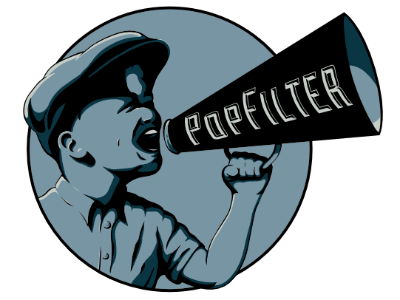Freaks and Drinks
The Pilot
Most of the time, pilots are visual sewage. It’s hard to get them right because pilots have a big job to do, and more often than not shows get tangled up in completing the basic tasks of a first episode of a series: presenting a world, introducing characters, setting a tone and general purpose, and letting the audience know why they should care. Despite all those difficulties, the Freaks and Geeks pilot manages to be one of the best ones I’ve ever seen. It completes all these tasks and establishes itself in a fluid way and emerges as the very human struggle for its main characters to understand their own identities, and how this idea of who they are is influenced by the world around them.
It’s probably a little bit easier to understand what I’m trying to say here if use Lindsay and Sam Weir to divide the show along gender lines. They are both coming to terms with similar issues, but there are very different things expected of them and they react in totally different ways. There is this concept in queer theory that goes something like this: from the time you are born, you are encouraged to behave in a certain way based on your gender. Girls are nudged into activities that allow them to put down roots, like taking care of dolls, playing house and playing with toys like easy bake ovens.
Boys are taught skills that foster more creative and competitive skills such as building model airplanes, playing with toys like legos, and participating in competitive sports. This would make gender, aside from the biological, a largely preformative thing, or a series of learned behaviors. So, assuming that theory is true, it seems as though girls are put in a position where they are less likely or less able to challenge the systems around them. But because gender is a show you put on based on how society declares you should act, not some programmed soft-ware embedded in your underwear parts, life’s experiences can fuck with your ideas of how you should behave. And that’s what is going on with Lindsay.
Lindsay Weir was the only person in the room when her grandmother died. Before that, she was an excellent student, stayed out of trouble, dressed conservatively, and was a mathlete. She was a champion of the system. But after her Nana’s death, things began to unravel. When she saw her grandmother die, she realized the finite nature of life because she is now too old to view it with a childlike innocence. When we think of a coming of age story, we think of a person who is just barely beyond their childhood in the midst of carving out an identity. Facing her own morality in the death of a family member, Lindsay starts to rebel against the system she once took such an important role in, because she no longer buys into the way she is suppose to behave, life is just too short. She no longer champions the system and begins to pull up roots. It is no wonder when you meet her oblivious, suburban father who’s strange preoccupation with death has him connecting it with any behavior he finds inappropriate.
If grandma never did anything wrong and she still died alone, what the hell is the point of ever being good? She becomes drawn to the “freaks,†the kids who hang out under the bleachers. From her sheltered position, their lives are a lot more dangerous, exciting and free. Their friendship offers her an opportunity to break away what is expected of her. The system fights back, in the form of Mr. Rosso the guidance councilor and Millie, who trying to push her back into where they think she belongs.
And even Sam who asks, “Why are you throwing your life away?†Lindsay’s story is a struggle between being who she wants to be, sometimes failing at that, and dealing with the disappointment of the people who think she is making huge mistakes.
Which brings us to little Sam Weir, the little brother, the geek. Sam is not so much defined by a need to rebel, but pressure to conform to standards of masculinity. He’s got a bully, and he does what any kid is told to do, he tells an adult, who then tells him to be a man and stand up for himself. He is still very stuck in the inbetween. He’s got this kid’s body and kid’s problems but is expected to handle things in a macho, manly way.
It’s a fantastic first episode, you watch the characters try to carve out an identity that they feel comfortable with while responding to pressure to be something else. Though the grandmother’s death didn’t affect Sam quite the same way, it does loom over them both, reminding them they of their own mortality. Which sounds like a really dark thing, but it’s not. It allows them to embrace life in a much more meaningful and complex way.
So here is how this drinking game is going to work, you start out with this week’s rules, and each week you get more rules, but you still have to follow the rules from last week:
- Drink whenever Coach Ben Fredricks (Biff from Back to the Future) is wearing shorts.
- Drink whenever Kim Kelly is a bitch to Lindsay.
- Drink whenever the students are in their P.E uniforms.
- Drink when Eli flips out.
- Drink whenever Sam and Cindy are together.
There you go! See you next time with Beers and Weirs
-Stephanie Rose




